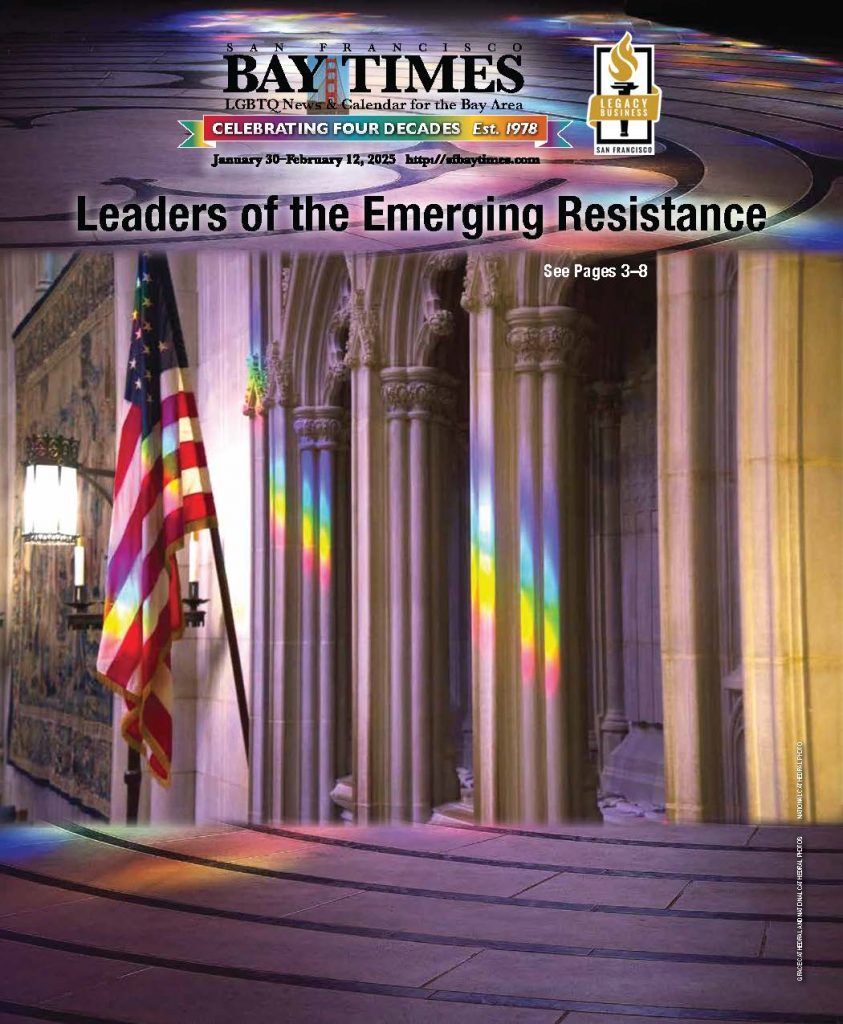
By The Venerable Reverend Miguel Bustos–

The words of The Right Reverend Mariann Budde, Episcopal Bishop of the Diocese of Washington, during the inaugural prayer service at the National Cathedral in Washington, D.C., are etched in my memory as a profound moment of truth-telling and prophetic witness. As a gay Latino and a clergy member within the Episcopal Church, I was deeply moved by her remarks—not only because of their personal resonance, but also because they exemplified the courage and compassion our faith tradition calls us to embody.
In addressing President Trump, Bishop Budde articulated the fears and humanity of two communities that have been vilified and attacked in recent years: the LGBTQ+ community and immigrants, particularly those who are undocumented. She spoke of the pain caused by policies and rhetoric that seek to dehumanize and marginalize, reminding us that behind every headline, statistic, or political debate are real people—families, friends, and neighbors—whose lives are profoundly affected.

One of the most poignant moments in her address was her subtle acknowledgment of our shared history as strangers in this land. This served as a reminder that before any of us or our ancestors arrived—by choice or by force—this land was home to Native Americans. Bishop Budde’s recognition of this truth called for humility and invited solidarity. She emphasized the moral and spiritual imperative to welcome the stranger, not as an act of charity but as an acknowledgment of our shared humanity and interconnectedness.
As a gay man, I have witnessed the harm caused by hateful words and discriminatory policies. The LGBTQ+ community has fought for decades for the right to live with dignity, and although we have made significant strides, the journey is far from over. Bishop Budde’s acknowledgment of these struggles, particularly in a high-profile and politically charged setting, was a balm to many wounded hearts. It reminded us that our humanity is not subject to debate and that The Episcopal Church stands with us in the fight for equality and justice.
Likewise, as the son of Mexican immigrants, her words about the plight of undocumented individuals resonated deeply. I know the stories of countless immigrants who have come to this country seeking a better life, driven by hope and resilience. Yet, too often, they face hostility, suspicion, and systemic barriers that deny their dignity and contributions. Bishop Budde’s insistence on recognizing their humanity and alleviating their fear was a powerful testament to our faith’s call to welcome the stranger and love our neighbor as ourselves.

As I listened to her words, I felt a profound sense of pride in our church and its mission. The Episcopal Church has long served as a beacon of inclusivity and compassion, providing a spiritual home to those pushed to the margins. Bishop Budde’s remarks highlighted our values and the tangible ways we live them out—by standing with the marginalized, speaking truth to power, and refusing to be silent in the face of injustice.
This moment also underscored the importance of the space The Episcopal Church has created for all people. As a gay, Mexican-American, and Episcopalian clergy member, I have found a community of love that affirms my whole identity and challenges me to live out my faith in service to others. Our theology of inclusivity is not just a statement of belief; it is a lived reality that shapes how we engage with the world and advocate for change.

Her remarks were a moment of inspiration and a call to action. They prompted me to reflect on how I, too, can use my voice and platform to amplify the stories of those who are often silenced. They reminded me of the power of faith to confront injustice and offer hope in the face of despair.
Bishop Budde’s address at the National Cathedral was a testament to what we can all be: a voice for the voiceless, a champion for the oppressed, and a community rooted in love and mercy. Her words were a gift, not only to those in the room that day, but also to all of us who strive to live our lives with integrity and compassion. May we continue this legacy of truth-telling and justice grounded in radical love.
Born and raised in the Mission District of San Francisco, the Venerable Reverend Miguel Bustos is the Archdeacon of the Diocese of California and The Episcopal Church’s racial justice and reconciliation manager.
Leaders of the Emerging Resistance
Published on January 30, 2025
Recent Comments